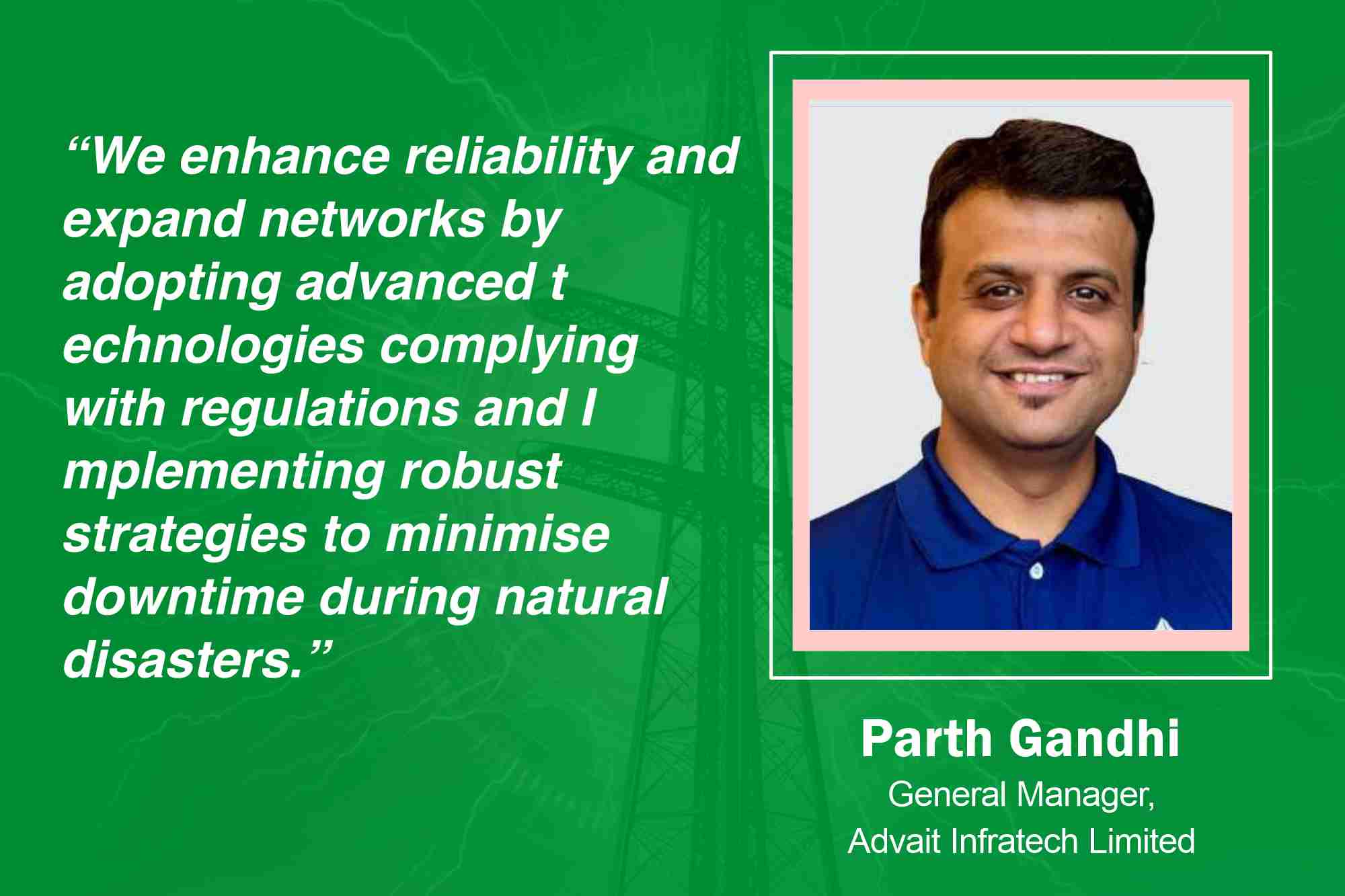Regulations drive innovation and competition in electricity infra segment
By EPR Magazine Editorial July 25, 2024 3:49 pm IST
By EPR Magazine Editorial July 25, 2024 3:49 pm IST

Companies in the electricity infrastructure industry are enhancing reliability and expanding networks by adopting advanced technologies and complying with regulations. Parth Gandhi, General Manager of Advait Infratech Limited, further explains how implementing robust strategies minimises downtime during natural disasters.
Spokesperson: Parth Gandhi, General Manager, Advait Infratech Limited
How are companies that build towers and lines for electricity working on making things work better and more reliably?
Companies in the electricity infrastructure industry are enhancing reliability by adopting advanced technologies and materials, improving grid management systems, and integrating smart grid solutions. They invest in regular maintenance and upgrades to existing infrastructure, ensuring that power transmission remains stable and efficient. Collaboration with technology firms to implement automation and real-time monitoring systems helps in the early detection and resolution of potential issues, thereby increasing overall system reliability.
What problems do they have to deal with in making the electricity network bigger?
Obtaining necessary permits and land rights, managing environmental impacts, and ensuring public acceptance are challenges to widening the electricity network. Technical issues such as grid stability, grid or transmission loss, integration of renewable energy sources, and upgrading ageing infrastructure are significant. Financial constraints and logistical hurdles in reaching remote areas can complicate expansion efforts. Companies must balance these factors while maintaining service quality and reliability.How do government regulations influence competition and innovation among companies?
Government regulations impact competition by establishing standards for safety, environmental compliance, and operational efficiency. These rules ensure a level playing field and promote fair competition among companies. Compliance with regulations prompts innovations as companies strive to meet or exceed the standards. However, regulatory changes can pose challenges, requiring companies to adapt quickly to new technologies to maintain their competitive edge and avoid penalties.
What strategies do companies employ to minimise downtime during natural disasters?
Companies implement robust design standards and various restoration systems to restore power (in case of an outage) and use advanced materials for infrastructure projects. They develop comprehensive disaster recovery and emergency response plans to minimise downtime. Investments in preventive measures, such as reinforcing critical infrastructure and using real-time monitoring systems, help mitigate the impact of natural disasters. Training programmes and simulations are conducted to prepare teams for efficient and effective disaster response.
We use cookies to personalize your experience. By continuing to visit this website you agree to our Terms & Conditions, Privacy Policy and Cookie Policy.